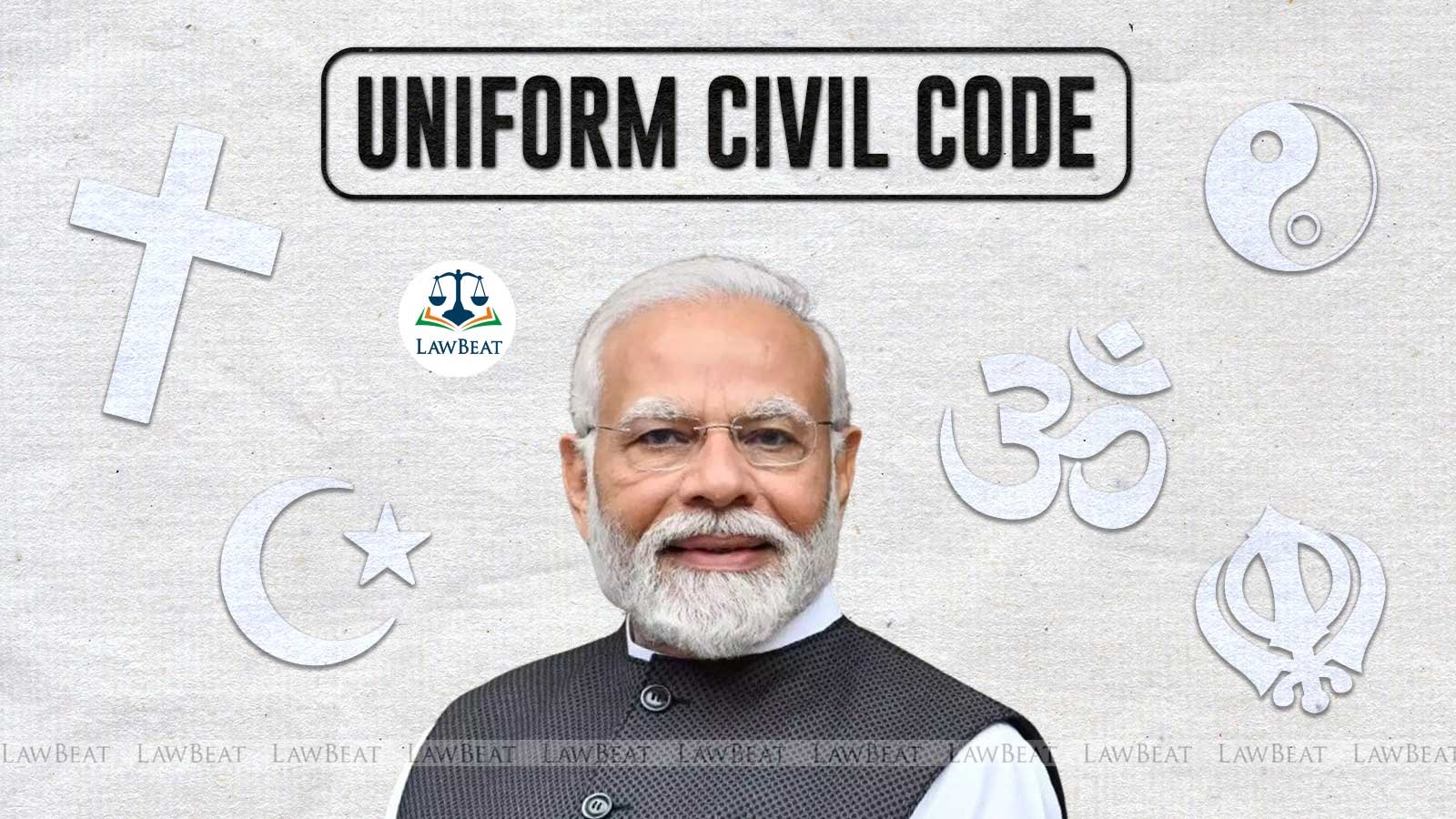Uniform Civil Code Back on Agenda as Centre Constitutes 23rd Law Commission

For the first time, the government has proposed appointing serving Supreme Court and High Court judges as Chairperson and Members of the Law Commission, with retired judges and other qualified individuals also eligible for these positions
The Central Government, under the leadership of Prime Minister Narendra Modi, has notified the constitution of the 23rd Law Commission, set to function from September 1, 2024, to August 31, 2027. This move comes just 17 days after the Prime Minister reignited the debate on the Uniform Civil Code (UCC) during his Independence Day speech, emphasising the importance of a "secular civil code" over the current "communal" civil code.
President Droupadi Murmu formally sanctioned the constitution of the 23rd Law Commission, marking a critical step forward as the term of the 22nd Law Commission ended on August 31. The previous panel had been functioning without a Chairperson for several months, leading to delays in the submission of crucial reports, including those concerning the Uniform Civil Code (UCC) and particularly simultaneous elections, which is reportedly ready but awaiting the procedural clearance that requires a Chairperson’s approval.
The Commission’s structure, as detailed in a gazette notification issued on Monday, includes a full-time Chairperson, four full-time Members, including a Member-Secretary, and several ex officio and part-time Members. For the first time, the government has proposed that serving judges of the Supreme Court and High Courts could be appointed as the Chairperson and Members. Additionally, retired judges and other qualified persons may also be appointed to these positions. The notification stipulates that serving judges appointed as Chairperson or Members will continue in their roles on a full-time basis until their retirement or the expiration of the Commission’s term, whichever is earlier. The time spent on these duties will be counted as “actual service.”
The 23rd Law Commission is tasked with several critical functions, as outlined in the Law Ministry’s notification. These include the review and repeal of obsolete laws, the development of a Standard Operating Procedure (SoP) for periodic reviews, and the amendment of laws to align with current economic needs. The Commission is also expected to harmonise laws based on recommendations from expert groups across ministries and address legislative references from various departments.
Although the newly constituted Commission's terms of reference do not specifically mandate the continuation of the UCC study, they do include the examination of existing laws in light of the Directive Principles of State Policy. The Commission is expected to suggest reforms and propose new legislation aimed at implementing these principles, including those set out in the Constitution’s Preamble. Article 44 of the Constitution, a Directive Principle, urges the state to secure a Uniform Civil Code for its citizens.
The 22nd Law Commission had made considerable progress in exploring the feasibility of implementing the UCC. After initiating fresh consultations last year, the Commission received inputs from a wide range of stakeholders and collected over 8 million responses nationwide. However, the preparation of a draft report was interrupted when Justice (Retd.) Ritu Raj Awasthi, the then Chairperson, was appointed as a judicial member of the Lokpal in March 2024.
